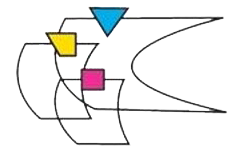When the number of students is under two, the class discusses articles from newspapers. We especially use the PARAPHRASING PLUS technique, the process through which participants describe or rewrite sentences using different words and adding their own comments.
Up to six, the ETA (Education Through Acting) process will be applied as below.
MON through WED
Each participant presents a theme and plot of a movie or novel they already saw or read. They will discuss the various themes that each presented, and then choose only one theme that everybody considers the most important or useful.
THU-FRI
Each student creates a plot to express the chosen theme. Through continuous discussion and modification of stories that everybody presented, a new story will be created. The story must be well-structured with foreshadows, impacts, reveals, and twists because we aim to create a high-quality creative work, not a joke.
The full process…? Go to our process.

Why is ETA process effective?
Let’s say that a school prepares a theatrical show for the occasion of the school festival. Educational Theatre method based on discussion will be applied. (The process of the Educational Theatre method is the same as ETA, in that both of the two are based on discussion.)
Here, the show is a superficial goal, and there will be final purposes that the school wants to achieve through the show such as fundraising, school promotion or consolidating membership, etc.
In Educational Theatre, it is an education expert, a teacher who leads the process. Usually, the teacher doesn’t know what to do to prepare a high-quality show. S/he doesn’t know how to direct a play, and students also don’t know what to do exactly. That’s why what they are doing flows quickly into a joke of laughing and chatting. The show they prepare will be a childish skit. Students can’t do their best in this process, and the audience can’t be touched by the show. There rarely will be educational effects in shows prepared through Educational Theatre method.
ETA process is directed by a theatre expert, a play director. What s/he focuses on is to create a high-quality show that can be sold immediately on the commercial market. Not only participants but the audience will be touched by the process and the show.
In other words, ETA can generate educational effects through a high-quality show production that can evoke artistic empathy, and both superficial and final goals can be achieved.
For this reason, the ETA process must be directed by a theatre expert who is able to prepare a high-quality show that can produce artistic empathy.
There is another key point to be considered. That is the change of the status of the participants.
Participants become students when they are led by teachers. Students are usually not autonomous but try to lean on teachers and learn from them rather than do something on their own.
ETA considers students independent artists. Participants become main agents who create their own artistic work. This change makes them more active and voluntary, increasing educational effect.
ETA approaches artistically, not educationally, even though the education is the main purpose.
